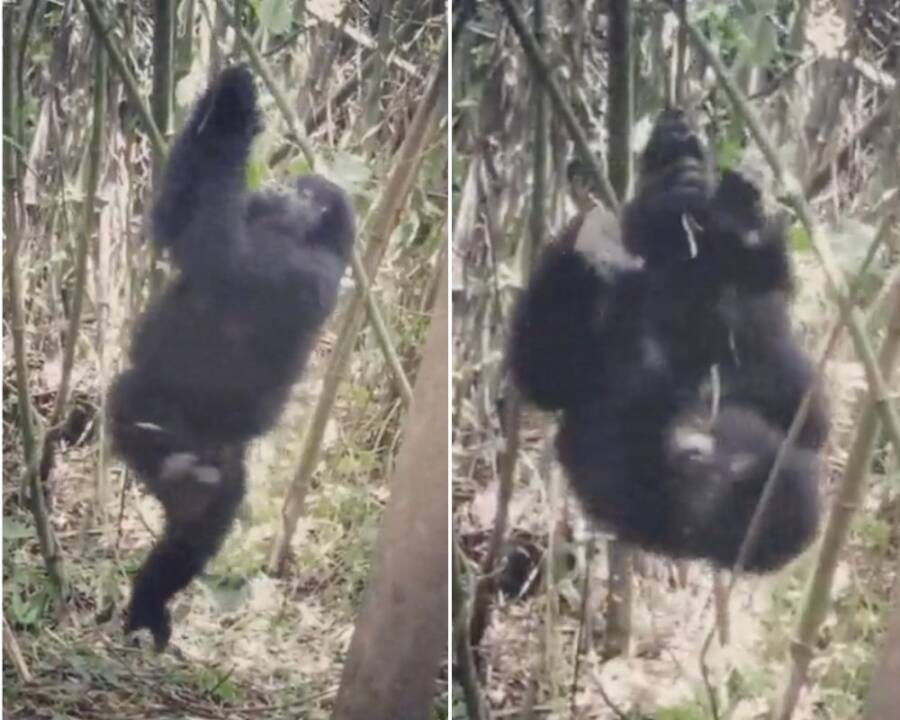This discovery could help scientists better understand human interest in mind-altering activities.

YouTubeZola the gorilla spins in a pool at the Dallas Zoo.
It turns out that humans aren’t the only species who like to get loose. A new study examining the behavior of great apes found that the creatures spin intentionally to get “tipsy.” Researchers believe these developments may help us understand why humans often seek out mind-altering drugs and activities.
Scientists analyzed more than 40 videos showing great apes spinning, sometimes using vines and ropes to twirl even faster. The study, published in the journal Primates, noted that the creatures often reached speeds fast enough to induce extreme dizziness, suggesting that the apes purposely attempted to reach a mind-altering state.
“Spinning alters our state of consciousness,” said Adriano Lameira, a psychology professor at the University of Warwick and the author of the study. “It messes… with our body-mind responsiveness and coordination, which make us feel sick, lightheaded, and even elated as in the case [of] children playing in merry-go-rounds, spinner-wheels, and carousels.”
The idea for this study stemmed from a viral video posted by the Dallas Zoo in 2018. It showed a gorilla named Zola spinning around in a plastic pool.
After watching the video of Zola, researchers were curious about the motive for his behavior and its possible connection to human evolution.
“What we wanted to try to understand through this study is whether spinning can be studied as a primordial behavior that human ancestors would have been able to autonomously engage in and tap into other states of consciousness,” Lameira stated.
Researchers started by collecting over 40 videos of great apes spinning. These included footage of gorillas, chimpanzees, orangutans, and bonobos.
According to Popular Science, the study found that the creatures spun an average of 5.5 times per session with an average speed of 1.5 revolutions per second. They then repeated the spinning session three times in a row.
Scientists concluded that the apes spun at a rate that would alter their perception — at speeds similar to professional dancers and circus actors. In fact, when the researchers attempted to spin just as quickly, they found that they were barely able to complete the third session.
With these findings, the team hopes that they can conduct further research to examine the connection between great apes and humans in their quest to perform mind-altering activities.
“The parallel between what the apes were doing and what humans do was beyond coincidental,” said Lameira.

YouTubeA gorilla spinning itself on a vine.
Historical evidence shows that human beings have sought out mind-altering stimuli since the beginning of time. According to Gizmodo, those living in the Levant 2,700 years ago used cannabis for ritualistic purposes, and cocaine and ayahuasca were used in Bolivia over 1,000 years ago.
“Every culture has found a way of evading reality through dedicated and special rituals, practices, or ceremonies. This human trait of seeking altered states is so universal, historically and culturally, that it raises the intriguing possibility that this is something that has been potentially inherited from our evolutionary ancestors,” Lameira said.
“If this was indeed the case, it would carry huge consequences on how we think about modern human cognition capacities and emotional needs.”
After learning about the spinning great apes, read 31 surprising facts about Charles Darwin, the man behind the theory of evolution. Then, learn about the 13-million-year-old ape skull that shined more light on the evolution of humans.





